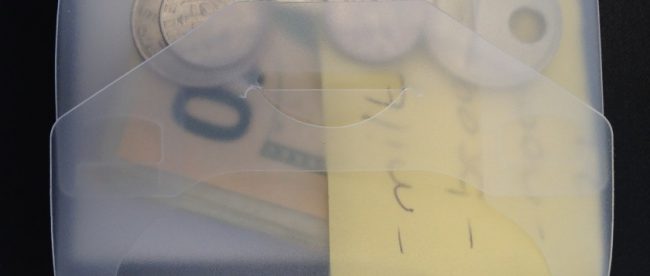The Kind of Amazing Thing That Happens When You Lose $13


The general rule in life is more is better, and when we’re talking about getting some money, that’s almost always the case. If someone offers to pay you $10 an hour or $12 an hour, you’re taking the latter, all else equal. The rule is so self-evident that you probably don’t need a second or third example.
But what if you find someone else’s wallet on the ground?
Here’s some good news: humans, we’re pretty good people, at least in this case.
For about two years, a research team led by University of Michigan professor Alain Cohn traveled the world, planting more than 17,000 allegedly lost wallets in more than 350 different cities across 40 countries. Some wallets had no money in it; others had the local equivalent of $13.45. Cohn and team wanted to see if people would return the lost items and, indirectly, to learn how people responded to being on the good side of someone else’s bad luck. Michigan’s website summarized their process:
Each wallet had a transparent face revealing a grocery list along with three business cards with a fictitious person’s name, title and an email address printed on them [and a house key, as seen above].
Research assistants posed as the wallet finders, hurriedly dropping them off in such places as banks, theaters, museums or other cultural establishments, post offices, hotels, police stations, courts of law or other public offices so as to avoid having to leave their own contact information. Most of the activity occurred in 5-8 of the largest cities in each country, totaling approximately 400 observations per country.
Cohn and team “assumed that putting money in the wallet would make people less likely to return it, because the payoff would be bigger,” as NPR reported. And just to make sure that assumption was widely held, the team surveyed more than 250 economists, asking them to predict what would happen. The consensus agreed: That $13 and change was as good as gone.
They were wrong. In almost all of the countries surveyed, the ones with the cash were more likely to be sent back — and yes, with the money still included. (The results from the other two countries were statistically insignificant.) Per the New York Times, “on average, 40 percent of people given cashless wallets reported them, compared with 51 percent of people given wallets with money.”
So the team went a step further. They wanted to see what would happen if even more money was literally there for the taking. So they extended the experiment a bit, introducing a third type of wallet into the mix: one with a bit more than $90 in it. And the results were striking. Reports the Times: “Way more people emailed to return the wallets with the larger amount: 72 percent compared with 61 percent of people given wallets containing $13.45 and 46 percent of people given cashless wallets.”
While this was only one experiment — and one which did not directly measure kindness — the research team believed that concern for others took center stage the richer the wallets were. They theorized that in this case, empathy, not greed, was the driving force behind the efforts of those who ended up with the “lost” wallets — your $13 or $90 windfall was someone else’s lost meal or missed rent. Empathy, not greed, won out.
The full paper can be found here.
Bonus fact: If you hear someone yell out that someone stole their wallet, you may want to pause for a moment before checking to make sure your own wallet is safe and sound wherever you keep it. According to the Stuff You Should Know podcast, some pickpockets will vocally fake victimhood as a tactic to figure out where their own would-be victims keep their valuables.
From the Archives: The Very Lost Wallet: It was found… ultimately.
